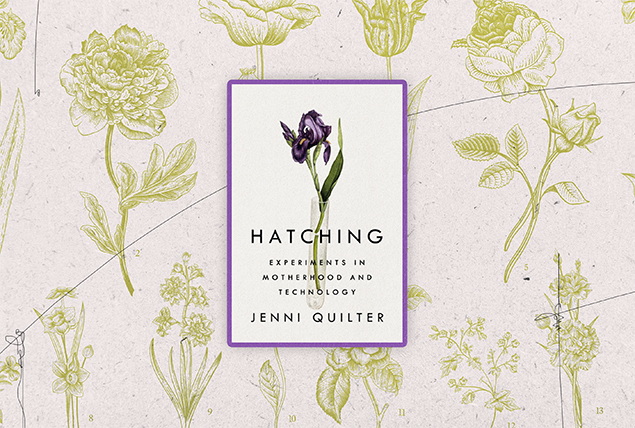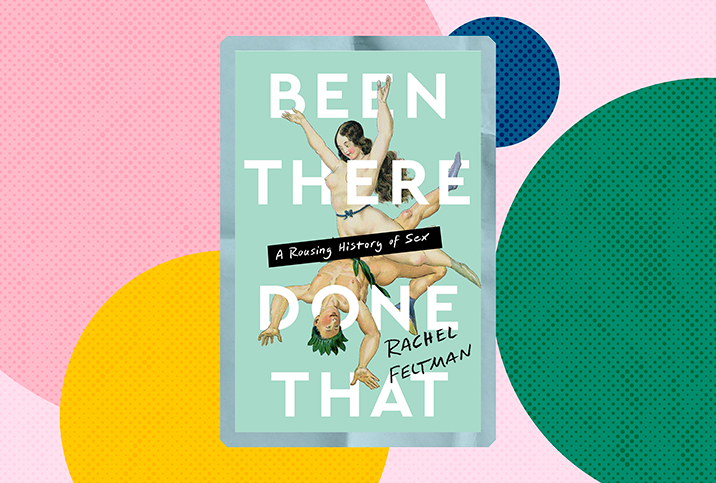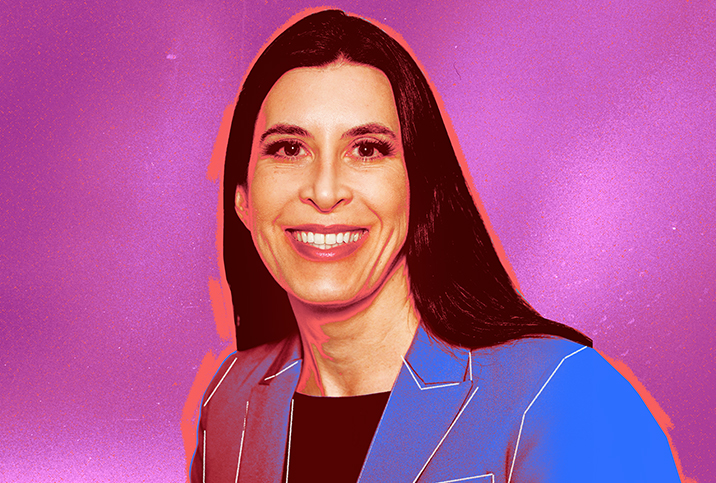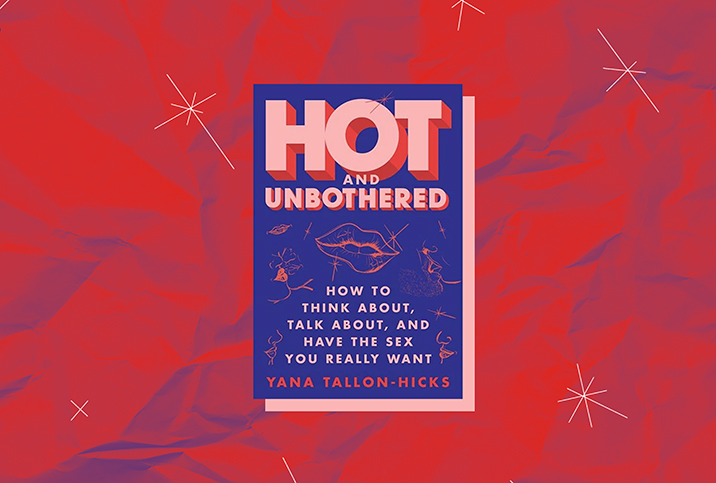Between the Pages: 'Hatching' Explores the Technology of Motherhood

When Jenni Quilter learned she had diminished ovarian reserve, she was overwhelmed by the depth of her grief.
"I had…unconsciously accepted that giving birth would act as a fulcrum, a kind of tipping point," she explained. "What would my life look like without that central event around which everything else gained interpretive symmetry?"
In her new book, "Hatching: Experiments in Motherhood and Technology," Quilter examined both her personal journey and the cultural history of in-vitro fertilization (IVF). She crafts a compelling narrative that explores the complexities of assisted reproductive technology (ART)—its advancements and its limitations, and the interplay between technology and humanity.
Quilter is the executive director of the expository writing program and assistant vice dean of general education at New York University in New York City. In this exclusive interview with Giddy, she discussed the difficulty of maintaining agency over one's own body during the IVF process, the sociological side of longing for motherhood, and the way fertility clinics, and fertility care, are geared toward "a heteronormative nuclear family fantasy," which can unintentionally be unwelcoming to queer people.
Editor's note: This interview has been edited for length and clarity.
What made you want to write about the technology of motherhood?
Quilter: When I was a kid, my after-school time was often spent at my father's office at the University of Auckland's medical school (in New Zealand). He taught first-year med students and worked closely with lab technicians who prepared a variety of animal and human tissues for students. I have strong memories of the gentle collegiality of his office, and how "human" the science was.
My mother was also a doctor in family medicine and I spent time in her waiting room, too, watching the patients wait for her.
This is all to say that when I came to IVF, I didn't automatically think of medical technology as something "unnatural."
Women are often encouraged to instinctively valorize the "natural," and as a writer who'd spent a lot of time writing about art and poetry, it felt interesting to me to tackle a different writing discipline from a point of view that, as a woman, I wasn't necessarily expected to have. It amazes me that the conjunction of motherhood and technology still registers as surprising—it shouldn't, as many excellent writers have shown us—but it does.
What was your reaction when you discovered you had diminished ovarian reserve and freezing your eggs, as you'd originally planned, was no longer recommended?
I spent some time trying to describe my emotions in the book because it was way more complicated than I anticipated. I was "undone"—overwhelmed by a grief that completely took me by surprise, as I'd never felt that strongly about wanting to have children.
The contradiction devastated me as a person but interested me as a writer. People are tempted to explain it using socio-biology. In general, we obviously have a well-evolved instinct to procreate.
But the longing and the grief appeared at such a distinct time for me and it was quite separate from my actual ability to procreate. There seemed to be so much more of the "socio" than the "biological" in my experience.
I wanted to understand that more because when fertility experts talk to you about your fertility, it is all about biology.
You wrote you 'had underestimated the structural logic of motherhood.' What does that mean?
When I was in my 20s, I read about image schemas. This is a fancy way of naming recurring structures in our cognitive processes, which establish patterns of understanding and reasoning. According to this theory, our bodily experiences as babies direct our later linguistic experiences and expressions.
Our most basic spatial patterns (in/out, up/down, etc.) structure figurative language and abstract reasoning. For example, we metaphorically project the spatial direction "out" without thinking twice into more conceptual sentences like, "Tell me your story again, and don't leave out any details" or "She finally came out of her depression."
At the time, this knowledge helped me see how insidious sense-making was in poetry. Even if a poet strained to be dissociative, their brain couldn't help but use coherent image schemas. In contemporary poetry that appeared to describe impossible scenes, a basic sense lurked in the lines, spatial views appearing like the outlines of old shipwrecks buried under the sand. Image schemas functioned as a secret cognitive and linguistic glue, holding us together even when we tried to linguistically fall apart.
Motherhood felt like an image schema, which was suddenly revealed when I realized it might not be possible for me. I knew, consciously, my own baby desire was far slighter than that of other women I knew, but I had also unconsciously accepted that giving birth would act as a fulcrum, a kind of tipping point. This was not so much about wanting a baby as expecting a life shaped by one.
What would my life look like without that central event around which everything else gained interpretive symmetry? No wonder I was bereft. Without realizing it, I had considered motherhood as a kind of automatic meaning-making machine. Now I was exhausted by the prospect that I would have to craft this meaning on terms that would not be immediately or easily understood by people around me.
What was your journey with reproductive technology like? What surprised you the most about the experience?
I started out by saying I had a very positive relationship with medical technology growing up, but what struck me about becoming a patient in my 30s was how difficult it was to maintain a sense of agency in the process.
The book, in many ways, is about how to retain some kind of interpretive agency over your own experience that isn't just based on whether you're a "good" patient or not. For me, it felt critical to do so if I was to come through the process without a lot of sadness or resentment.
IVF works about 30 percent of the time (a very rough estimate), which means there's a lot of disappointment. We can talk about how our lives are upended by technology or transformed by one, and I wanted to allow for both verbs regardless of whether I was successful or not, while avoiding a lot of retrospective magical thinking.
You discuss that even after all these years, reproductive technology is still geared toward a heteronormative nuclear family fantasy. What observations during your own process led you to this conclusion?
The medical definition of a woman's infertility is the inability to fall pregnant after a year of unprotected intercourse. Just think about this for a second.
What happens if you're a queer woman? What happens if you're not having unprotected intercourse with a man for a year, but somehow you're still classified as infertile for the purposes of IVF care? How do you account for the difference between the medical definition and your own lived experience?
I don't think people in the IVF community necessarily want to discriminate against alternative kinship structures. All the nurses I met were wonderful. The doctors were great. It's not as if there's this kind of concerted effort to go back to conservative family values.
But when I visited IVF clinics, every doctor or nurse would, without fail, refer to my co-parent as my husband, to the point where I just gave up correcting people.
What do you know now that you wish you'd known before starting IVF and what do you hope people take away from reading your book?
There are a lot of discussions online, on infertility chat boards and in online forums, about what various test results mean for your prognosis. This is extremely helpful when you're feeling alone and unsure about what is happening, but it also conditions you to view your experiences in surprisingly narrow ways: that it's all about numbers, that IVF is an ordeal, etc.
I wish I'd known this was not the only way to understand and navigate my experience, and that my experiments in my own fertility allowed me to rethink all kinds of common assumptions about motherhood and what it means to raise a human being.
"Hatching" ended up being about paradigm shifts, in that it rethinks what we mean when we say we want to reproduce, and reconsiders the intersection between feminism, science and aesthetics when it comes to fertility [and fertility treatments].


















